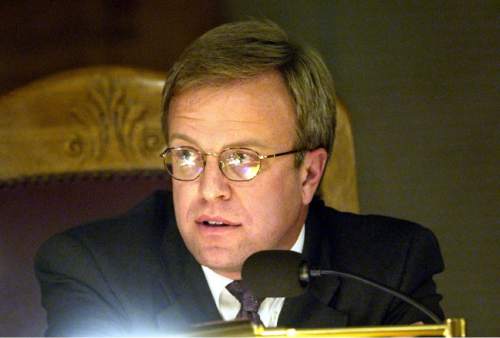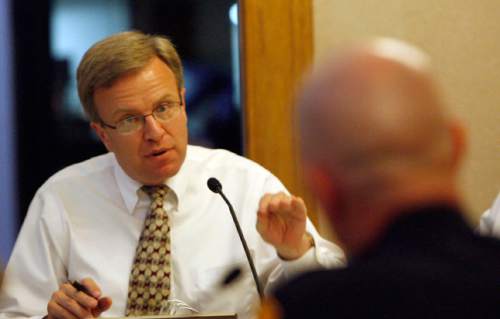This is an archived article that was published on sltrib.com in 2016, and information in the article may be outdated. It is provided only for personal research purposes and may not be reprinted.
A federal grand jury in New York has indicted a former Salt Lake City councilman, alleging that he engaged in a conspiracy to steal $2.5 million from a bank account set up to fund a construction project.
Charged in Albany, N.Y., was Eric Jergensen, 56, of Salt Lake City, and Debashis Ghosh, 52, Chicago, who were co-CEOs of Verdant Capital Group. The company existed to raise funds for construction and energy projects.
According to the indictment, a New York company identified only as Company A contracted with Verdant to raise funds for construction of an airplane maintenance facility in Plattsburgh, N.Y. As part of the deal Company A deposited $2.5 million in seed money into an account with the understanding it would remain there for at least a year.
But five days after the money was transferred in December of 2010, Jergensen and Ghosh allegedly began transferring money out of the account. By March of 2011, they had taken all of the $2.5 million from the account, according to the indictment.
The money was used to pay for Verdant's expenses and transferred to other companies, the indictment alleges. That included $1.75 million to a now-defunct home energy service company, a $55,000 loan to an acquaintance and at least $40,000 sent to a Jergensen's company called Contour Composites, according to a news release from the U.S. attorney's office for northern New York.
If convicted, the two face up to 20 years in prison and a $250,000 fine. They were arraigned on Wednesday and released pending trial.
Jergensen could not be reached for comment Wednesday afternoon.
Jergensen, whose legal name is Keith Eric Jergensen, served on the Salt Lake City Council from 2001 through 2009, representing Capitol Hill and the Avenues. He also served as head of the city's redevelopment agency.
His last year in office included embarrassing financial episodes that encouraged him to not seek re-election. Twice judges issued bench warrants for his arrest over failure to pay judgments against him. The warrants were recalled after he paid.











